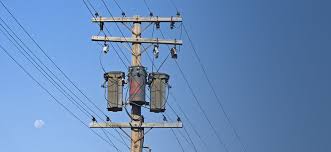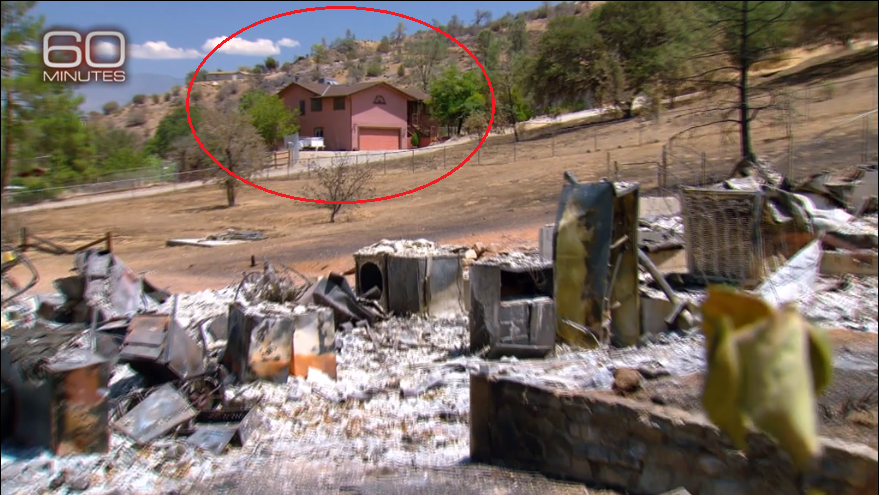'The Utility Industry has Traditionally Been Hostile to Rooftop Solar Power'
Maybe our lousy power grid unites us. If too many people run their own standalone rooftop solar plus home battery system, the grid infrastructure may fray from neglect:
David Cay Johnston's site DCReport.org published in 2017 an expose on lobbying by big utilities hoping to slow the growth of rooftop solar:
And the health of the grid arises with the thought of installing wall batteries one would only use during power blackouts. It doesn't make sense to buy something used so rarely. Why not sell your excess energy back to the macro-grid, drive your energy bill back to $0.00, and draw juice from a local micro-grid hooked up to some rail battery when the power goes out? Oh right, the power lines connecting the home to the micro- or macro-grid are themselves the fire hazard.
Only a few types of electric cars such as some Teslas and the Nissan Leaf sell with an adapter that can power one's home during power outages. If the automobile industry broadens this feature to more cars, perhaps future blacked-out neighborhoods will be filled with more juice haves than have-nots.
If utility-planned blackouts are to prevent exposed utility wires from igniting, they could hasten homeowners' transition toward stand alone off-the-grid living. As such, isn't it in the best interests of utility companies everywhere to bury those power lines underground, eliminating the need for future outages?
-----------------------------------------
Further Reading:
Home battery systems can help during power outages. So can the battery packs rolling around in electric vehicles. greentechmedia.com
Utility Companies Pull the Plug on Home Solar Systems: dcreport.org
California Might Not Require Solar on New Homes After All: latimes.com
"To understand 'micro' grids let's say what a 'macro' grid is: a network of energy sources, energy generators, utility delivery lines and '24-7 control centers monitoring supply and demand.'" offlinereport.net

This work by AJ Fish is licensed under a Creative Commons Attribution-NonCommercial 4.0 International License.
Solar advocates are worried other utilities will follow SMUD’s lead, in part because the utility industry has traditionally been hostile to rooftop solar power.Why did so much of the media declare California unlivable this year when fewer people died in fires than in previous years? Maybe because PG&E preemptively brought blackouts to more people who did not have to face the even the thought of fires. Until now.
Public utilities such as SMUD, which is governed by an elected board, don’t have a profit motive. But like their privately owned counterparts, they’ve long argued rooftop solar creates an unfair “cost shift” from customers who can afford rooftop systems to customers who can’t.
The more homes go solar, the argument goes, the more rates will have to rise for everyone else to pay the costs of running the grid — a notion disputed by the solar industry, which says rooftop solar lowers grid costs.
David Cay Johnston's site DCReport.org published in 2017 an expose on lobbying by big utilities hoping to slow the growth of rooftop solar:
But traditional energy companies have put together a very successful lobbying blitz aimed at removing homeowner incentives to install solar panels, hoping to slow the growth of solar power. Now, nearly every state is reviewing its solar energy policies. Five states have chosen to phase out net metering since 2013: Hawaii, Nevada, Arizona, Maine and Indiana. And other states are considering disincentives for private solar customers, introducing new fees or hiking existing ones.While "lobbying" sounds subversive, what those lobbyists said has been on the minds of many since last month when wide swaths of our state lived through multi-day power blackouts, brought solely for the purpose of preventing fires. This time the people enduring power outages were tame. But what if they (we) get more unruly, will we be looking to grab juice from our neighbors?
The homeowner incentives for using solar power mostly come in the form of net metering, a practice that allows customers with solar panels to sell excess power at retail price back to the grid.
And the health of the grid arises with the thought of installing wall batteries one would only use during power blackouts. It doesn't make sense to buy something used so rarely. Why not sell your excess energy back to the macro-grid, drive your energy bill back to $0.00, and draw juice from a local micro-grid hooked up to some rail battery when the power goes out? Oh right, the power lines connecting the home to the micro- or macro-grid are themselves the fire hazard.
Only a few types of electric cars such as some Teslas and the Nissan Leaf sell with an adapter that can power one's home during power outages. If the automobile industry broadens this feature to more cars, perhaps future blacked-out neighborhoods will be filled with more juice haves than have-nots.
If utility-planned blackouts are to prevent exposed utility wires from igniting, they could hasten homeowners' transition toward stand alone off-the-grid living. As such, isn't it in the best interests of utility companies everywhere to bury those power lines underground, eliminating the need for future outages?
-----------------------------------------
Further Reading:
Home battery systems can help during power outages. So can the battery packs rolling around in electric vehicles. greentechmedia.com
Utility Companies Pull the Plug on Home Solar Systems: dcreport.org
California Might Not Require Solar on New Homes After All: latimes.com
"To understand 'micro' grids let's say what a 'macro' grid is: a network of energy sources, energy generators, utility delivery lines and '24-7 control centers monitoring supply and demand.'" offlinereport.net

This work by AJ Fish is licensed under a Creative Commons Attribution-NonCommercial 4.0 International License.



